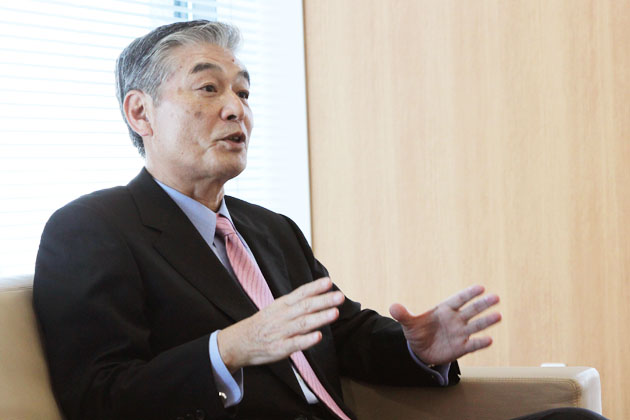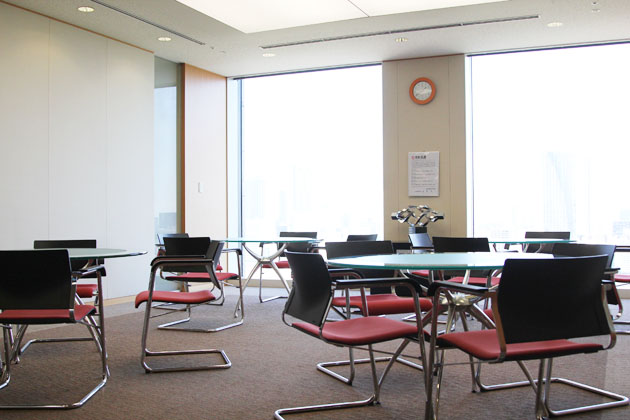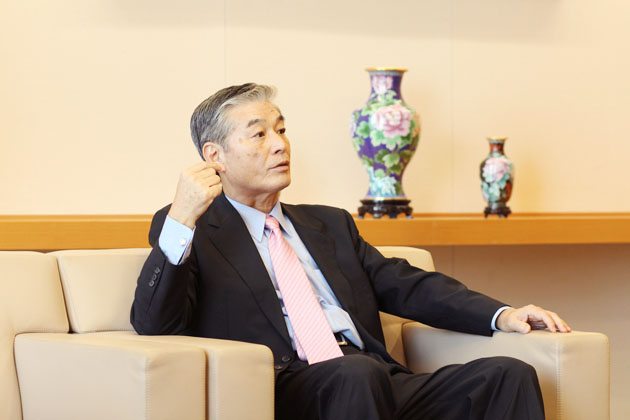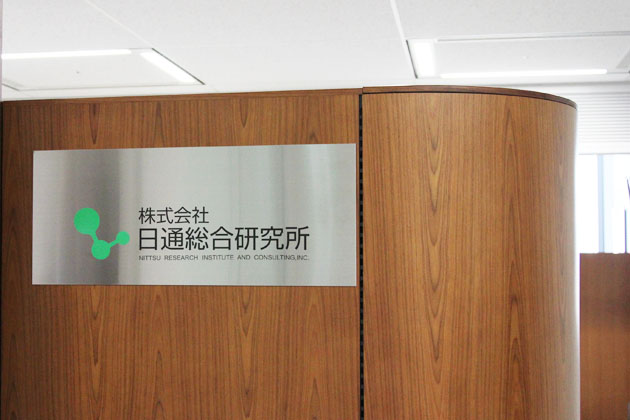
Interview with Keiichiro Yokoyama, Nittsu Research Institute and Consulting, Inc:
As the country's only think-tank specializing in logistics, we had the privilege of speaking to Keiichiro Yokoyama, representative of Nittsu Research Institute and Consulting, Inc about prospects for the future and business deployment overseas, starting with the movement of the logistics business as a whole.
Could you tell me about the latest circumstances of the logistics industry?
Keiichiro Yokoyama (Yokoyama)Cargo volume within the domestic market has been decreasing for the past 20 years, but the importance of "logistics" is growing. Since expectations towards the logistics industry has changed to "the optimization of an entire supply chain" from simply "transport service" to carry things, retail companies directly linked to consumers, such as supermarkets and convenience stores, are aggressively expanding overseas. The combination of domestic and international manufacturers means that these companies entail logistics, so our company positively continues to do business deployment abroad.
Could you tell me about the latest circumstances of the logistics industry?
YokoyamaCargo volume within the domestic market has been decreasing for the past 20 years, but the importance of "logistics" is growing. Since expectations towards the logistics industry has changed to "the optimization of an entire supply chain" from simply "transport service" to carry things, retail companies directly linked to consumers, such as supermarkets and convenience stores, are aggressively expanding overseas. The combination of domestic and international manufacturers means that these companies entail logistics, so our company positively continues to do business deployment abroad.
Are there many companies expanding in Asia?
YokoyamaYes; because of the proximity of other Asian countries around Japan, Asia as a region has been gaining a lot of attention as an enormous market and is now known as the "World's factory". The cost of production in developing countries is low, so many companies in developed countries have factories scattered around that area. On the other hand, domestic demand is expanding and standards of living are improving in Singapore and China. These two aspects make Asia an extremely appealing area.
Does the logistics supply chain in Japan receive high recommendation from other countries in the world?
YokoyamaThere is probably a rarity in the amount of countries that have services to specifically send packages to be reached at a certain time and on a certain day and month (possibly only in some developed countries). For example, the logistics supply chain in Japan is very polite and fine, even if its just a delivery to a local convenience store. We can make relations a win-win for both sides by cooperating with local companies stationed overseas and logistics companies in Japan, which already has this high level of know-how experience.

―Country's only think-tank focused on logistics.
What are the strengths of the Nittsu Research Institute?
YokoyamaOur company is part of the Nippon Express Corporation, so we can maximize various projects to network throughout the world in 140 countries. In addition, there is only the Nippon Express Research Institute as a domestic company specializing in logistics, consulting and research.
Nippon Research Institute makes huge contributions to the logistics industry and in human resources development, not just consulting and research.
YokoyamaOur company regularly holds seminars called 「Logi-zemi」for those who are involved with the logistics industry.There are about 30 university professors from the Nippon Research Institute that teach the know-how of logistics, such as data analysis and other necessary knowledge for consulting. It is part of our characteristic to take such an academic role in this society. We would like to contribute to the industry and educate logistics specialists of the future as well.
What do you see for the future of business?
YokoyamaFirst of all, we have to reinforce overseas ventures based on the needs of clients. We would like to cooperate with consulting companies overseas and make the most of our network in the Nittsu group. As for the area that has the greatest needs, we will directly send our employees.
Does it mean that the new country will aggressively develop and explore outside of Asia?
YokoyamaYes. There is always a need where things move. We have been paying a lot of attention to Mexico in Central America. Labor costs are one-fifth of that in the U.S. and with its location being in the middle of both Americas, its increased economic growth has made it the world's largest market between North and South America. The country also has a great advantage between land borders, unlike many island countries in Asia. This means we can export and carry products and parts simply by using a railroad. Japanese car manufacturers have been mostly expanding into the regional market, so I think there are many things that we can do to help.

―Opportunity to work overseas: Mr. Yokoyama visits many countries to join business investigations.
Company members tend to visit various areas to investigate in its potential overseas.
YokyoamaI think the opportunity to work abroad is more than you can imagine. We go around Asia a lot and stay there for few weeks. One of our employees is currently still investigating in India. Some of our employee are always in a condition to work overseas.
Do you often realize "good things about Japan" through working overseas?
YokoyamaI think the "good things about Japan" include the diligent behavior of the people, like good manners and showing a caring side for others. In particular, Japan's suburbs and local cities express this good point. Japan is seen as the safest country in the world and this idea of "Japaneseness" in our society may be the cause. Japanese common sense does not really apply overseas, so there is always a tense feeling at work. However, I cannot really put into words the secure feeling I felt when I came back to Japan.

Finally, please give a message to the readers.
YokoyamaLogistics is becoming the source of profit. Formerly, distribution in Japan was called the "dark continent" and was misunderstood as "only taking money" or "not knowing what to do". Despite that, the real meaning of "blackness" is "a gold mine hidden inside, if you can find and develop it." We want you to utilize our company and think seriously about where it is a waste or unguarded
Keichiro Yokoyama Profile
1975 graduate of Kyushu University's school of law. At Nippon Express, while mainly working in the labor and general affairs department, he achieved his past positions as executive officer, labor manager, executive officer and manager at the Nagoya branch and Osaka branch. Currently, as the CEO of Nippon Express Research Institute and Consulting, he researches distribution mainly in Southeast Asia. At the frontline on corporate consulting, he continues to support the globalization of the Nittsu group.
Nittsu Research Institute and Consulting, Inc
http://www.nittsu-soken.co.jp/english/index.html
